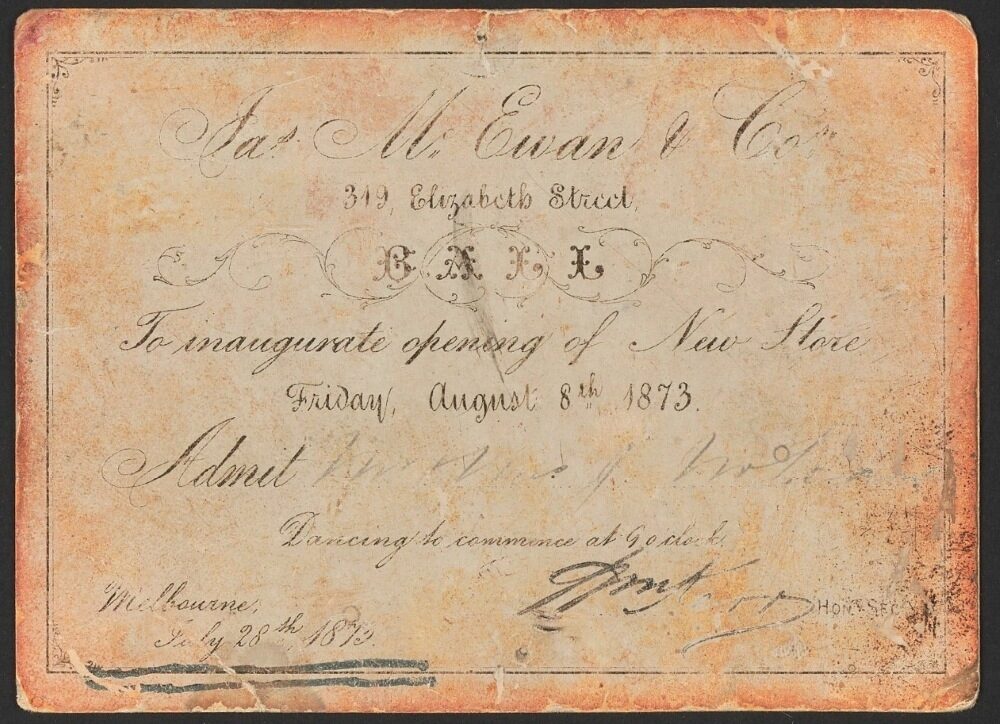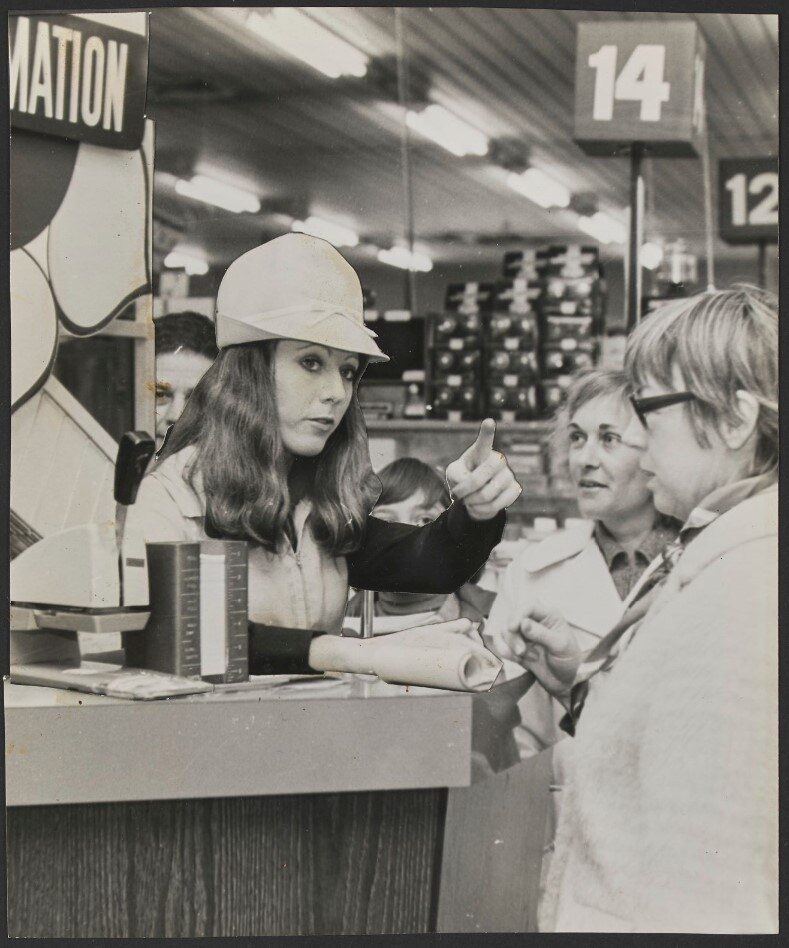From ironmongery to Australian icon: the McEwan's retail revolution and its role in the transformation of shopping
Explore a world of retail history in The Transformation of Shopping: Department Stores, Social Change and Consumerism, 1830-1994. The collection uncovers over a century of social and cultural changes through the lens of department stores, with rich content sourced from international archives. Discover how these retail giants influenced societal norms, consumer behaviour, and global business practices.
One such store featured in this resource is McEwan’s which was founded by James McEwan in Melbourne, Australia, in 1868. The store initially started as a small ironmongery business, selling quality hardware and household goods to the growing population of the burgeoning city. Throughout the late nineteenth century, McEwan's expanded its product range to include a variety of tools, building materials, and home improvement items. The store's reputation for quality and reliability helped it to attract a loyal customer base.

Invitation to a Ball held for the opening of James McEwan & Company's new store, 319 Elizabeth Street, Melbourne. Material sourced from Australian National University, Noel Butlin Archives Centre
By the end of the nineteenth century, McEwan’s had established itself as one of Melbourne's leading hardware retailers. The store continued to expand its offerings and began to supply products for larger construction projects in addition to individual customers. Later, during the interwar period, McEwan's further solidified its position in the market by expanding its physical presence with new store locations. The company began to modernise its operations and implement more efficient business practices, evidence of which can be explored and analysed within The Transformation of Shopping: Department Stores, Social Change and Consumerism, 1830-1994 collection.
After World War II, McEwan's capitalised on a boom in home construction and renovation by increasing its inventory and focusing on customer service. The store became a go-to destination for both professional builders and DIY enthusiasts. At the same time, McEwan’s was receiving numerous applications for job positions from men recently returned from their various wartime occupations.
I am a returned soldier from the last war and lost my only son in this one and would be grateful for your help in obtaining employment.
McEwan's continued to thrive, becoming a household name in Melbourne and beyond. The company diversified its product offerings to include gardening supplies, automotive products, and a wider range of home improvement items. A continued interest in modern customer service practices was exemplified by McEwan’s ‘Sunflower Girl’, a service girl who assisted customers in store and directed them through the expansive range of products.

Customers seek assistance from McEwan's Sunflower Girl. 'Action Pak', July 1974. Material sourced from Australian National University, Noel Butlin Archives Centre
The store underwent further expansion during the 1980s, opening more locations and expanding into new markets. McEwan's also began to explore opportunities in the emerging trend of big-box retailing, aiming to offer a comprehensive shopping experience under one roof.
The store finally ceased operating under the McEwan name in 1993, having been acquired by Perth-based hardware giant Bunnings. By this time, however, McEwan’s had made an indelible mark on the Victoria retail scene, having survived for well over a century. As the McEwan’s slogan famously said: “You can do it with McEwan’s because we’ve got a million things”.
About the author
Lara Luker is an editorial assistant at AM.
Recent posts

For centuries, women participated in London’s book and print trades despite formal exclusion from the Stationers' Company. In part one of two, guest blogger Dr Helen Williams highlights what the Company's archives, digitised in Literary Print Culture, show about women’s roles as printers, booksellers, and business owners.

Discover how the Mass Observation Project evolved through the 2010s. Explore societal trends, from climate change to digital shifts, revealed through module IV. Read how researchers and the public document everyday life in a changing world.
